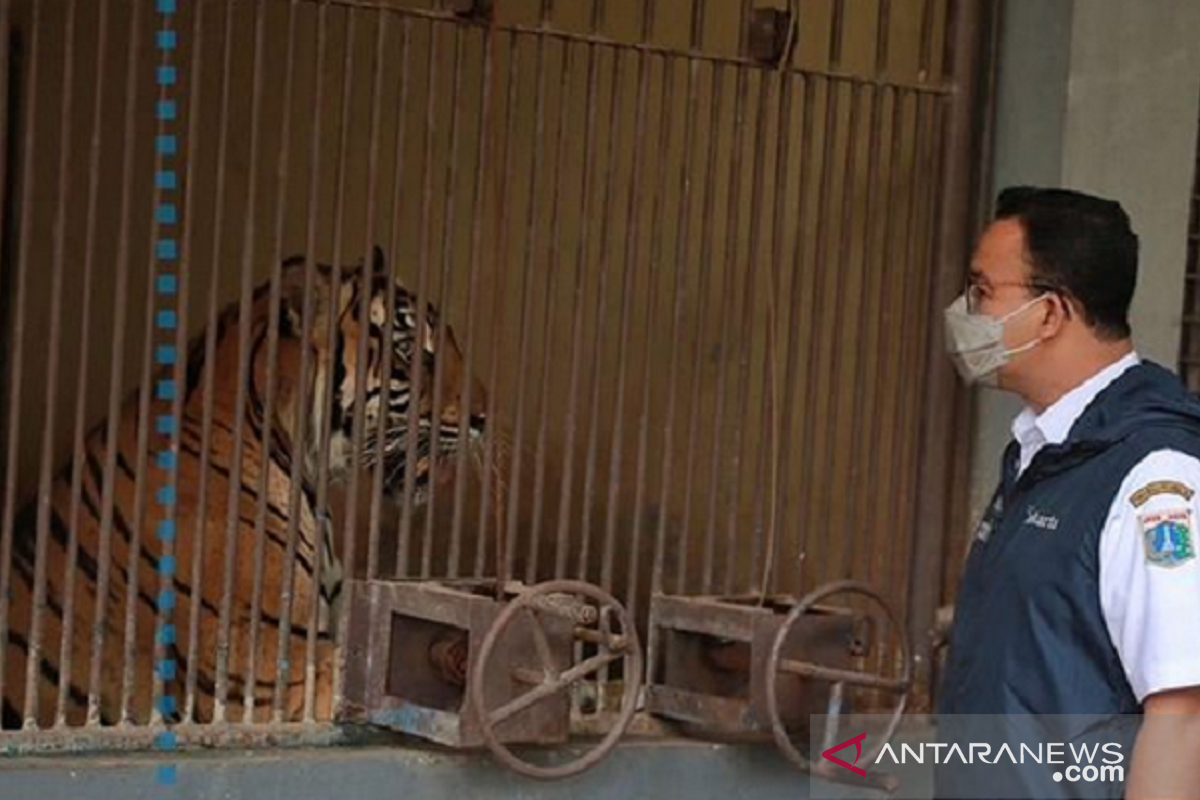"Yesterday, after touring six vaccination locations in Jakarta, I stopped by Ragunan (Zoo) to visit these quite unique COVID-19 patients," Anies Baswedan wrote on his Instagram account on Sunday.
Hari and Tino, the two Sumatran tigers, were diagnosed positive for COVID-19 on 15 July.
A caretaker of the tigers in Ragunan noticed three weeks ago that Hari and Tino were sick, weak, short of breath and caught flu, which are symptoms similar to COVID-19 disease.
The zoo's team immediately called a swab officer to take swab samples of Hari and Tino and send them to the Biotechnology Laboratory of the Primate Animal Study Center, Bogor Agricultural University (IPB University).
They later took PCR tests on the animals and the results also confirmed that Hari and Tino were infected with the novel coronavirus, Hence, they must be isolated in separate cages and given adequate food and medicine during the healing process.
Related news: On Eid holiday, Ragunan Zoo receives 2,460 visitors
Cases of animals affected by COVID-19, especially tigers and lions, are not unique, according to the governor.
There have been many similar cases in other countries. Of course, caring for animals contracting COVID-19 is different from caring for humans, he added.
"Hari and Tino cannot be sent for isolation to Wisma Atlet (emergency hospital for COVID-19 patients). But, they must undergo isolation and treated under close monitoring by the best veterinarians in Ragunan," Baswedan said.
Hari and Tino are now gradually recovering and active again. However, because Jakarta is still in a Level 4 PPKM restriction measure, the zoo remains closed to the public.
"So Hari and Tino don't have to rush back to WFO and have time to fully heal themselves," the governor wrote.
Sumatran tigers are the smallest of all tiger subspecies and in captivity can weigh up to 140kg .
Fewer than 400 Sumatran tigers are estimated to remain in the wild in Sumatran forests.
This subspecies is listed as Critically Endangered on the IUCN Red List of Threatened Species due to poaching, habitat loss and human-wildlife conflict.
Kerinci Seblat National Park and the Ulu Masen as well as Leuser ecosystems of Aceh are global priority areas for tiger conservation.
Related news: South Jakarta's Ragunan Zoo remains open with PSBB re-enforcement
Translator: Men Fardah
Editor: Suharto
Copyright © ANTARA 2021












